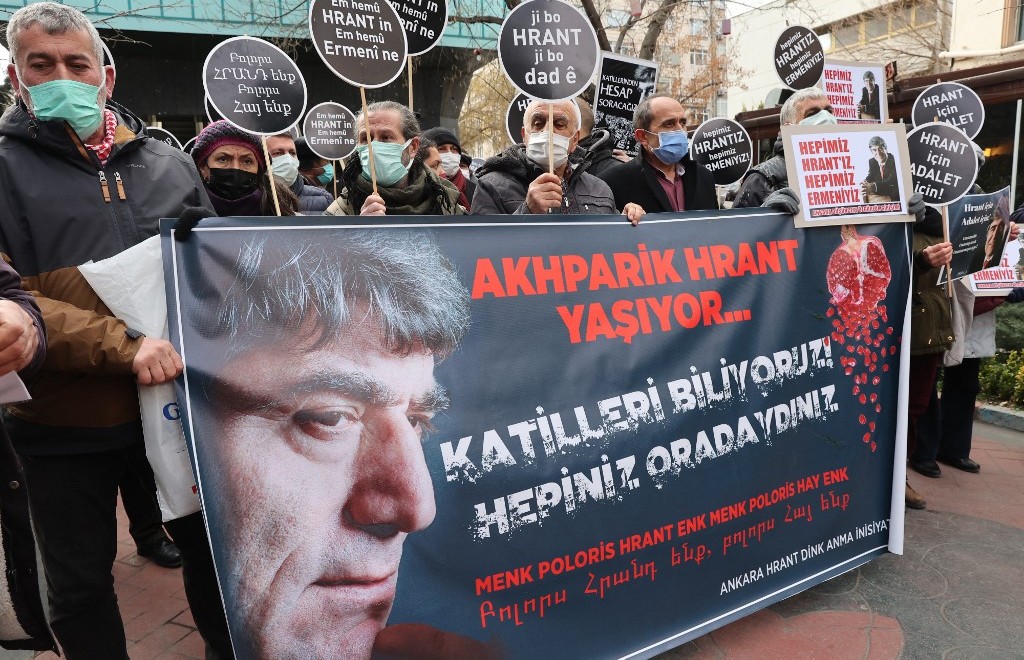The phone conversations of some defendants in the Gezi Park trial about commemoration ceremonies for slain Turkish-Armenian journalist Hrant Dink have been treated as criminal evidence by a top prosecutor, the Agos weekly newspaper reported.
A 77-page opinion drafted by Zafer Şahin, the deputy chief prosecutor of the Supreme Court of Appeals, about jailed rights defender Osman Kavala and his seven codefendants in the Gezi trial was submitted to the court last week.
Kavala, who had been behind bars without a conviction for over four years at the time, was given a life sentence, while the seven others were sentenced to 18 years each on charges of instigating the anti-government Gezi Park protests by an İstanbul court in April 2022. They were convicted of attempting to overthrow the Turkish government for their alleged role in the protests, which began over an urban development plan in central Istanbul and spread to other cities in Turkey.
In his opinion the prosecutor recommended that the convictions of Kavala and six other defendants in the trial be upheld, while seeking reversal of the conviction of architect Mücella Yapıcı due to the lack of credible evidence against her.
Phone conversations between Çiğdem Mater, a journalist and film producer who is one of the jailed Gezi trial defendants, about a commemoration ceremony for Dink, and Can Atalay, a human rights lawyer and another jailed defendant, in 2014 made their way into the opinion of the prosecutor as criminal evidence.
Every year Dink, who was killed in broad daylight by an ultranationalist youth in İstanbul in 2007, is commemorated at the scene of the crime in İstanbul’s Şişli district.
In one of the phone conversations between Mater and Atalay, on Jan. 14, 2014, they talk about holding a meeting to discuss preparations for Dink’s commemoration ceremony on Jan. 19, the day of his murder.
Dink’s family released a statement in which they expressed disappointment over the conversation about the Dink commemoration ceremony being criminalized in the prosecutor’s opinion.
The family said inclusion of the private phone conversations between the defendants about Dink’s commemoration ceremony in the prosecutor’s opinion only shows the inability of the prosecutors to find concrete evidence against the defendants.
The statement said Mater was a friend of Dink who has always supported his family.
Mater, who released a statement from Bakırköy Women’s Prison, said the prosecutor did not take the defendants’ statements at court hearings into account when writing his opinion.
She said she still hopes there are judges at the Supreme Court of Appeals who will make a fair judgment about them.
“A decision [upholding the convictions] will mean the start of a very dark period, not only for the people jailed in this trial but for the law,” said Mater.
The final decision on the Gezi trial defendants will be made by the 3rd Criminal Chamber of the Supreme Court of Appeals.

